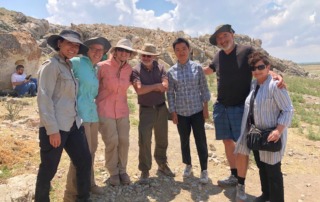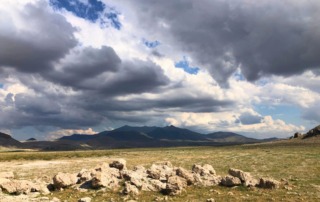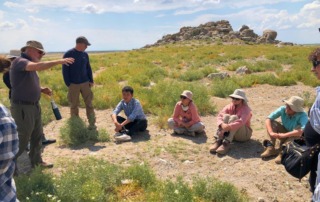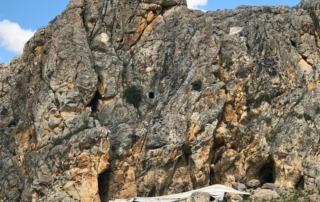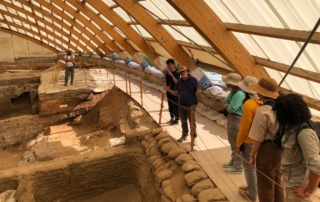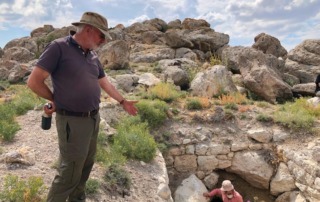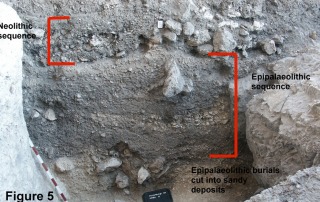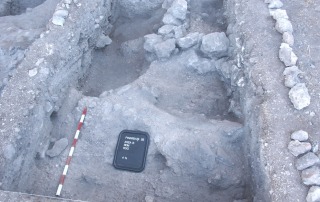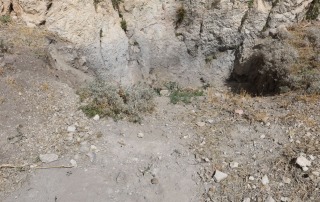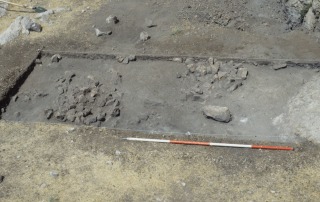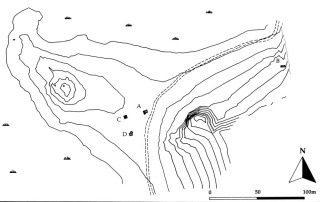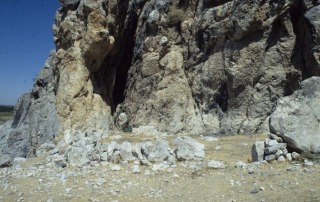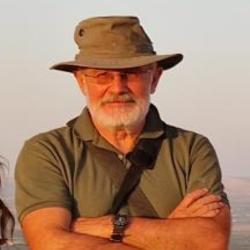Overview
Discover the transformative Epipalaeolithic period at the Pınarbașı site in central Turkey, a unique excavation that sheds light on one of humanity’s earliest shifts from hunting and gathering to settled agricultural life. Situated along the Konya Plain, Pınarbașı is the only known Epipalaeolithic site in Anatolia, offering students a rare chance to investigate this critical transition spanning from 14,000 to 11,000 BCE. Working alongside professional archaeologists, field school students will engage directly with excavations, unearthing intricate burial sites and settlement patterns that mark the beginnings of sedentism. As part of this archaeology field school, students will also study cultural heritage preservation strategies by exploring visitor engagement methods used at renowned nearby UNESCO heritage sites like Çatalhöyük and the Cappadocia rock cut churches. Join us and develop hands-on skills through excavation, lab analysis, and cultural heritage preservation while immersing yourself in the rich archaeological landscape of Anatolia.
Field school highlights:
- Gain practical skills in excavation, artifact cataloging, and soil analysis guided by seasoned archaeologists.
- Learn how UNESCO sites manage tourism at active excavations as you apply these strategies to real-world cultural heritage preservation projects
- Venture through the rich culture of central Turkey, visiting medieval cities, renowned Neolithic sites, and remote Byzantine and Hittite archaeological sites as part of your program.
**Please note: this program has an early deadline to allow for the participants to receive necessary permits from local agencies. Permit delays could cause a shift to the program dates.
| Course Details | |
|---|---|
| Course Dates | June 23 – July 19, 2025 |
| Course Type | Field Archaeology |
| Instructors | Prof. Douglas Baird |
| Credits* | 8 semester (12 quarter) |
| Deadline** | December 1 |
| Fees Due By | April 15 |
| Program Fees | (2025) |
|---|---|
| Tuition | $3,925 |
| Transcript Fee* | $300 |
| Health & Evacuation Insurance | $125 |
| Room & Board | $950 |
| TOTAL: | $5,305 |
**This program has an early deadline to allow for the permitting process and applications are now closed for the season.
Instructors
The directors welcome emails and inquiries about the research elements of this project. More general information (tuition, health insurance, and payment schedule) can be found under the ‘Students’ tab above. Any further questions may be addressed to IFR staff. Additional details about research, course schedule, travel, accommodation, and safety can be found on the syllabus. Contacting the directors or the IFR office is encouraged and appreciated. It may help you determine if this field school is a good fit for you.
Testimonials
This is a new IFR field school. No student testimonials are available at this time.
Payment & Student Fees
Application Fee: There is a $45 fee to submit an online application.
Deposit Payment: A nonrefundable $500 deposit is due within 3 weeks of program acceptance in order to secure your place. The remainder of your program fees are due by the deadline indicated under “Course Details”.
*Transcript Fee & Academic Credit Opt Out: If you wish to participate in an IFR field school without earning academic credits, you will not be charged a transcript fee.
For more information about payment, fees, and policies, please see details under our Payment & Finances and Withdrawal and Cancellation Policy pages.
Accommodations
Our accommodation will be in a new dig house near the site. Students will share bedrooms. Laundry facilities are available.
All meals will be communal events and will provide plenty of nutritious but basic food in the tradition of local cuisine cooked by local people. The daily diet in Turkey is heavily based on pasta, rice, legumes bread other vegetables, with some meat. Vegetarians/Vegans are catered for and gluten-free diets are catered for. The food is varied and nutritious but it will be thoroughly Turkish, which might not appeal to all students. It is, of course, halal.
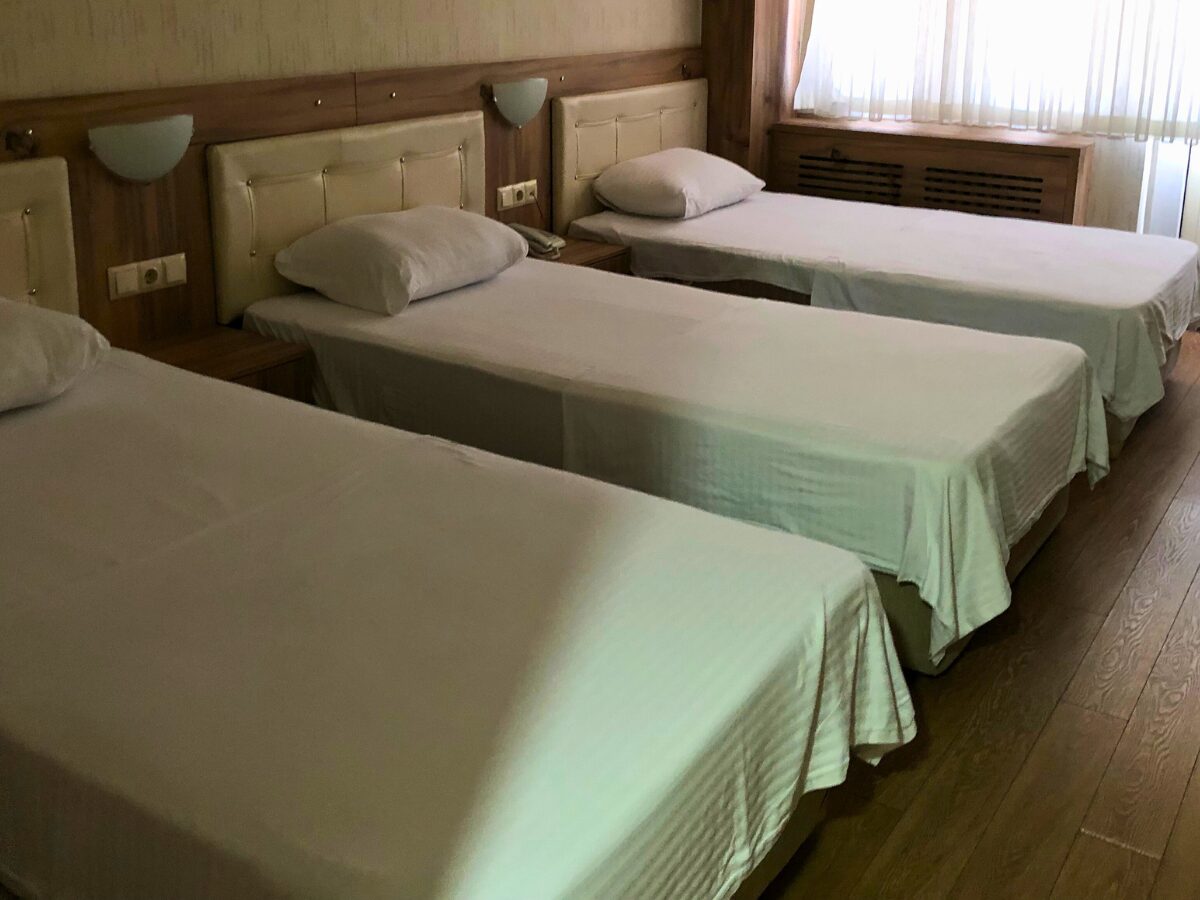
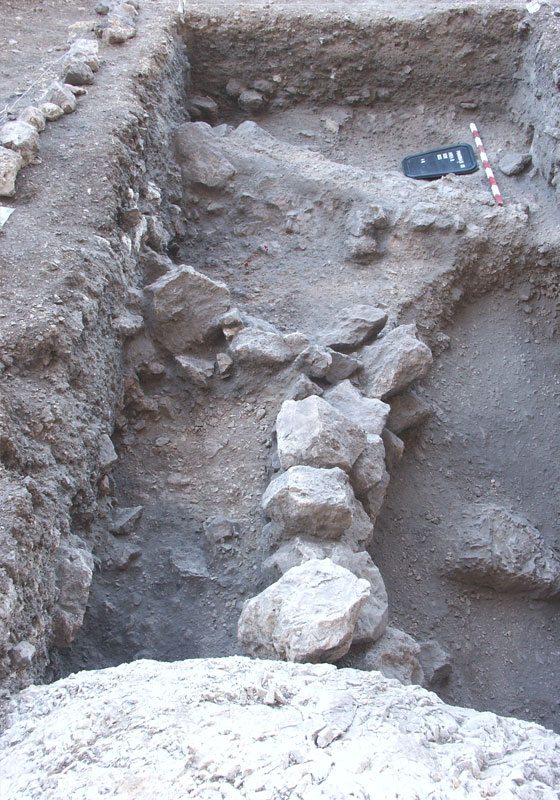
Travel Info
Natural disasters, political changes, weather conditions and various other factors may force the cancellation or alteration of a field school. IFR recommends students only purchase airline tickets that are fully refundable and consider travel insurance in case a program or travel plans must change for any reason.
General information for this program is below, but keep in mind we will discuss any updated travel information and regulations during the required program orientation, which could affect travel plans.
FLIGHTS
The closest city to the site with an airport is Konya. There is an international airport at Konya although most flights route through Istanbul. Flying to Konya is easiest and Professor Baird will meet IFR students at that airport. Alternatively, one can fly to Istanbul and travel by high-speed train (4.5 hours) from Istanbul to Karaman, although these trains book up quickly. Professor Baird will also meet people at the train station in Karaman, if required. You will be driven from collection point to the accommodation in the dig vehicle.
TRAVEL RESTRICTIONS/PROTOCOLS
Please frequently consult the US Embassy in Turkey website for the most up-to-date travel restrictions/protocols.
VISA REQUIREMENTS
All personnel engaged in archaeological research in Turkey must be cleared by the authorities. Enrolled students will receive a special visa to attend the field school. All accepted students will be asked to complete official forms – those will be sent to students by Project Director – and all documents will be submitted as a group for approval to relevant Turkish authorities. Just before the program students will collect research visas from relevant local consulates, this will involve making suitable arrangements with those consulates for visa collection under guidance from Prof. Baird.
Citizens not from the US are asked to check the embassy website page at their home country for specific visa requirements.
PASSPORT VALIDITY
The Turkish government require that your passport should be valid for at least 6 months from the date you enter Turkey and that there is a full blank page for the entry and exit stamps.


